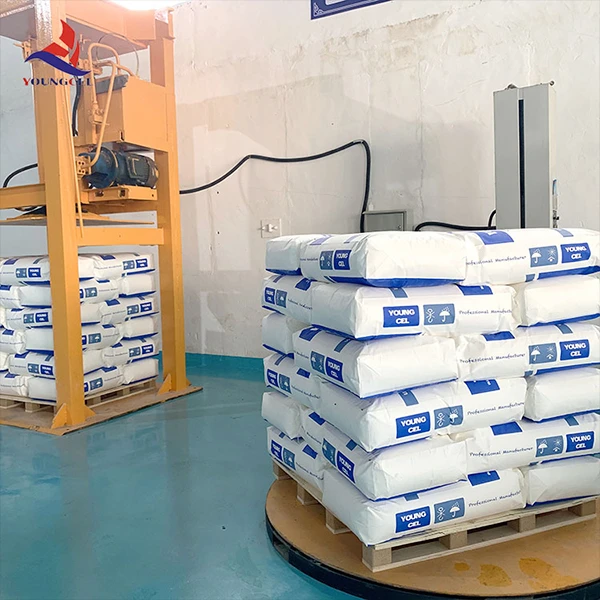The Role of Concrete Additives in Modern Construction
Concrete has been a fundamental material in construction for centuries, renowned for its strength and durability. However, the raw properties of concrete can be significantly enhanced through the use of various additives. Concrete additives play a crucial role in modern construction, helping to improve the performance, durability, and sustainability of concrete mixes.
What Are Concrete Additives?
Concrete additives, also known as admixtures, are substances added to the concrete mix before or during the mixing process to modify its properties. These additives can be classified into two main categories chemical admixtures and mineral admixtures.
1. Chemical Admixtures These are typically liquid substances that alter the physical and chemical properties of concrete. Examples include - Plasticizers Improve workability without additional water, making it easier to place concrete in complicated molds. - Accelerators Speed up the setting time, which is beneficial in cold weather or when quicker turnarounds are required. - Retarders Delay the setting time, allowing for longer work periods before the concrete hardens, which is especially useful in hot weather environments. - Air-entraining agents Introduce microscopic air bubbles into the concrete, enhancing its resistance to freeze-thaw cycles.
2. Mineral Admixtures These are powdered materials such as fly ash, silica fume, or ground granulated blast-furnace slag. They are added to improve the mechanical and durability properties of concrete. For instance, fly ash can enhance the workability and strength of concrete while reducing water permeability.
Benefits of Using Additives
The integration of concrete additives allows for numerous benefits that contribute to the overall performance of concrete
- Enhanced Durability By using additives, concrete can withstand various environmental challenges, including moisture, chemicals, and temperature fluctuations. This durability extends the lifespan of structures and reduces maintenance costs over time.
concrete additives

- Improved Workability Concrete often presents challenges in terms of mold filling and placement. Additives such as superplasticizers enhance the fluidity of concrete without compromising its strength, making it easier to work with, especially in intricate designs.
- Sustainability The use of mineral additives like fly ash not only recycles industrial by-products but also reduces the carbon footprint associated with cement production. This transition towards more sustainable concrete mixes is essential in addressing the environmental impact of construction activities.
- Cost-Effectiveness While there may be an upfront cost associated with specialty additives, they can lead to savings in the long run. Improved performance can reduce the thickness of slabs, the need for maintenance, and the frequency of repairs.
Innovations in Concrete Additives
The field of concrete additives is continuously evolving, driven by advancements in technology and a demand for better-performing materials. New formulations are being developed to cater to specific applications, such as ultra-high-performance concrete (UHPC) and self-compacting concrete (SCC).
Additionally, recent innovations focus on incorporating nanotechnology, which enhances mechanical properties at the microscopic level, resulting in stronger and more durable concrete mixtures. Researchers are also exploring the use of bio-based additives that can offer similar benefits while being environmentally friendly.
Conclusion
Concrete additives have transformed the construction industry, enabling engineers and builders to create more resilient, efficient, and sustainable concrete mixes. As building standards evolve and environmental concerns become more pertinent, the importance of these additives will continue to grow. By leveraging the benefits of chemical and mineral admixtures, the construction sector can meet modern demands for high-performance materials while minimizing its environmental footprint. As we look to the future, the role of concrete additives will be pivotal in constructing the safe, durable, and sustainable infrastructure our society needs.
-
Rdp Powder: Key Considerations for Wholesalers in the Building Materials IndustryNewsJul.08,2025
-
Key Considerations for Wholesalers: Navigating the World of Hpmc - Based ProductsNewsJul.08,2025
-
Hpmc Detergent: Key Considerations for WholesalersNewsJul.08,2025
-
Key Considerations for Wholesalers: China Hpmc For Tile Adhesive, Coating Additives, Concrete Additives, and MoreNewsJul.08,2025
-
Crucial Considerations for Wholesalers: Navigating the World of Construction MaterialsNewsJul.08,2025
-
Key Considerations for Wholesalers Sourcing Additive For Cement, Additive For Concrete, Additive For Putty from Additive Manufacturer Shijiazhuang Gaocheng District Yongfeng Cellulose Co., Ltd.NewsJul.08,2025




